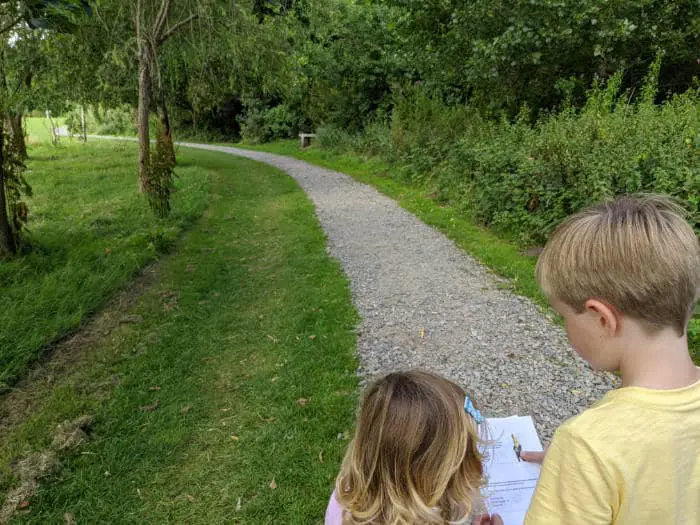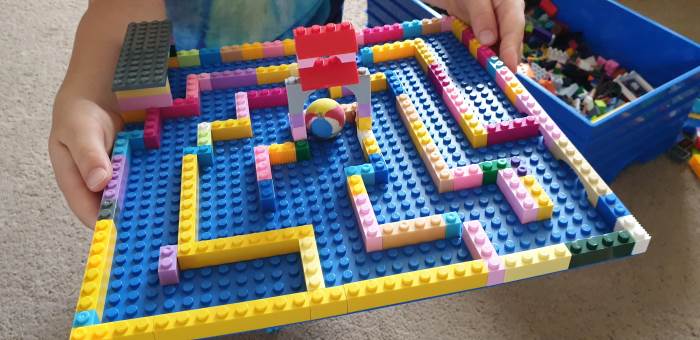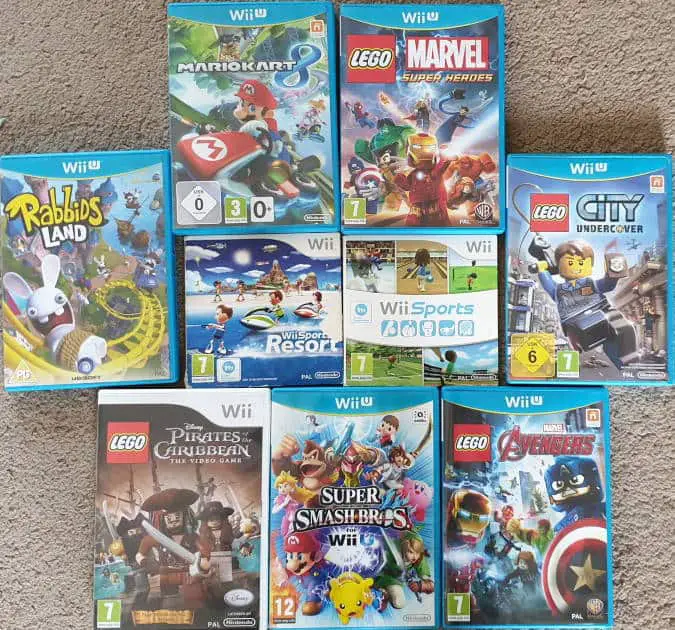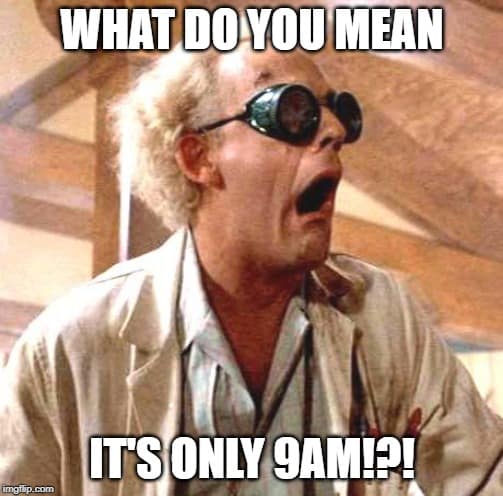Car rides with small children (or older) can be stressful, tiring, and downright irritating at times. And yes, we have endless amounts of tech to keep kids engaged and consumed by cartoons, games, and books, but sometimes it’s nice to tap into the nostalgia of yesteryear.
What did they do back then? Well, they talked and played games (insert dramatic gasp from your preteen). Yes, they talked…
However, you don’t have to be stuck playing the same old license plate game for an entire trek across the country. There are endless games to keep everyone entertained and their eyes off the screens. That’s why we rounded up our 20 favorite games to play in the car with your kids. These cover ages 2+. Have a look before you gas up for your next vacation and save your sanity!

20 Games for Kids in the Car
The Memory Recall Game
This is a pretty simple concept which addresses memory, order of events, and language skills for kids. You can play it with kids as young as 2 (depending on language skills) all the way up through grade school.
Simply recall where you went, what you saw, and what you did. This could be, “I went to the store and ____,” or “I saw ____ on our hike in the forest.” This is a good way to encourage conversation and retention of details. You can ask them what colors they saw, what animals were there, which toys were by the register on the way out the door. Likewise, your child can ask you what you remember. Make it a game and whoever remembers the most “wins.”
Eye Spy
An oldie, but a goodie, Eye Spy is a family favorite and a total classic. If you’ve never played, you simply say, “Eye Spy with my little eye…something ___.”
Usually, you’d say a color. Example: Eye Spy with my little eye something red. Then, people would guess the object until they get it right. Let’s assume they say a “stop sign” and then you’d let them know if they’re right or wrong.
This game could take up hours if you have that kind of stamina. To keep it interesting, you could add in shapes or other descriptors. With our kids, we started playing this around age 2, but the kids didn’t have a firm grasp on the concept until a little after age 3.
Make up a Story Bit by Bit
This is a fun game for older preschoolers and up. Simply pick one person to start the story. That person says a few lines and then the story goes to the next person.
Person number 2 adds a few lines and so on. Keep going around the car until you’ve completed the story. This is the perfect game for fostering imagination and teaching story structure, which is something kids pick up much sooner than you may realize.
Alphabet Aame
If you want another simple game that builds literacy, the alphabet game could be a perfect choice. To play, simply name an object that starts with the assigned letter. Go from A-Z.
You can add points for extra creative objects/animals. For example, if your child knows that they can say “gnome” for the letter “G,” that kiddo deserves a sticker or first pick for the next drive thru!
While toddlers probably aren’t ready for this game, it’s perfect for preschoolers that know their ABC’s and are working on building their phonetic skills.
Name Chains
This is definitely a better pick for older kids that are already fairly competent readers. You start with one word, then the next person must think of a word that begins with the last letter of the first word. If they are the same letter, you can reverse the order of the game.
For example: Cat—Tractor—Rear—Red
Your child will have to know the spelling of common words to play this one. So, it might be best to use simple words and base the levels off of their grade levels.
First One to Spot
If you want a simple premise with some rules, play “First One to Spot!” Simply think of an object and be on the lookout. The first one to spot the target wins.
Think of roadside objects like traffic cones, fast food signs, or patrol cars. If your little one can see out the window (most rear-facing car seats can’t), then they should be set to play. Keep track of points if you really want to get competitive.
Scavenger Hunt – Find a List of Things
Piggy-backing off of “First One to Spot,” a scavenger hunt can allow for longer playing time and difficulty. It might be wise to have a pre-made list of objects to include in your scavenger hunt.
Have someone keep track of who finds the object and compare results at the end. Some great objects to include might be postcards, loose change, tourism pamphlets, keychains, native flowers, etc. This could be a great game for long road trips.
Car Registration Game – Find the Letters / Numbers or States in USA
You can play the Car Registration Game a few ways (I.e. letters, numbers, or states on license plates). However, using states might be the easiest way to play and keep score.
It’s pretty simple, just keep track of who sees the most states as you drive and at each pit stop. You can award extra points for rarer states if you like. For example, if you’re driving through Alabama, it would be odd to see an Alaska plate, so you could award extra points.
Obviously, your child would have to be able to see the plates and understand the difference in each state. So, maybe save this one for kids of reading age.
Yes/No game
This is a word game where you have to have a conversation without using the word “yes” or “no.” If you use either of those, you’re out for the rest of the game. Whoever is the last man standing, so to speak, is the winner.
Younger kids could get a kick out of this one, even if they struggle a bit. This is probably a good game for kids in the “why” stage, as it will give them something else to focus on.
20 Questions
This is a classic game where someone chooses “something.” This can be anything in any category. The person then offers the category (person, place, or thing). Everyone else gets to ask 20 questions in an effort to guess the object.
This could be better for older kids capable of deductive reasoning. If your kiddo is a Sherlock Holmes fan or loves a good mystery book, it’s safe to say they’ll probably like this game.
Would you Rather
We all know this one. At some point in grade school, middle school, or high school, we’ve probably played this on a field trip somewhere. Basically, you just as another person if they’d rather ____ or ____.
You could say, “Would you rather swim in jello or spaghetti noodles?” Or you could try, “Would you rather eat a pickle sandwich or sardines on a pizza?”
Little kids will get a kick out of the imaginative combinations they can come up with. They might come up with some doozies, but at least it builds imagination!
Hypothetical Questions
This game is all about the conversation that follows. You can ask anything really, just be open and offer questions/answers your child is equipped to understand.
You can ask where they’d like to move when they grow up (mountains, beach, farm)? You can also ask what they’d like to do as an adult, or maybe who their role models are. No matter what you ask, make it a time to get to know your child and vice versa.
Chinese Whispers or Telephone
This is an age old game that teaches the important lesson of how a message can get lost in translation as it’s passed around. It’s a simple concept. Just have one person start the whisper, then pass it around until it gets back to the first person.
They’ll say it aloud and let you know if the message is the same or what got changed along the way. This is a fun game, but it’s also useful, especially for kids in school. They’re developing social relationships and networks, so it’s important to teach how their words can get twisted in whispers, even if it’s unintentional.
Name that Tune
Someone hums a song, then everyone tries to guess the name of the song. Easy enough, right?
You can try nursery rhymes and familiar tunes before leveling up to pop songs and current tunes. For older kids, you can always up the difficulty by requiring the name of the song as well as the artist or some of the lyrics.
Trivia
You know how trivia works, right? Someone asks a question and whoever gets the right answer earns a point. Whoever has the most points at the end wins. That can be the end of a list of questions, or you can go until you reach your destination.
You can even count trivia as educational by covering school subjects such as biology, geography, history, and more. Some people might find joy in coming up with their own questions, but if not, feel free to print a trivia sheet from the internet or invest in on-the-go trivia cards.
Church Mouse
Parents can use this “game” anytime they need a minute to reset and breathe. Meanwhile, the kids in the backseat will cup their hands over their mouths to stifle giggles and snorts as they’re supposed to be silent.
If you don’t know how to play, just say, “1, 2, 3, church mouse!” At that time, everyone has to be silent. The first one to giggle or talk loses the game. You can keep going until there’s one person left or start over immediately.
Lyric Ad Lib
A personal favorite in our household, you sing along with the radio. However, instead of the correct lyrics, you come up with something silly or absurd that rhymes and goes with the tune.
If you want to really dig, this game could be considered educational because it teaches kids how to rhyme words.
Name that Habitat
For science buffs, this is a fun game to play as you drive over the changing terrain. From the window, just point to an area and have your child name the habitat and who lives there.
For example, you see a thick cover of trees. Your child could say, “That’s a forest, and birds, deer, and bugs live there.” They could name rivers, creeks, hayfields, backyards, etc. You could also go into an explanation of ecosystems if your child is ready for that.
Color Category
This is easy and a great way to review colors for toddlers and preschoolers. Simply pick a color and name all the objects you can think of that are that color.
Example: Yellow
Banana, road sign, sun, dandelions, lemon, etc.
Name Practice
Like the other conversation starters above, this game can foster hours of talk between you and your little ones. For older toddlers and preschoolers, you ask them to give their last names, names of relatives, and close friends.
You can practice last names, as well as middle names. Kids, for whatever reason, seem to get a kick out of learning their mom’s, dad’s, grandparent’s, and aunt’s/uncle’s names. Plus, in case of emergency, knowing the last names of those important people can be very important.









